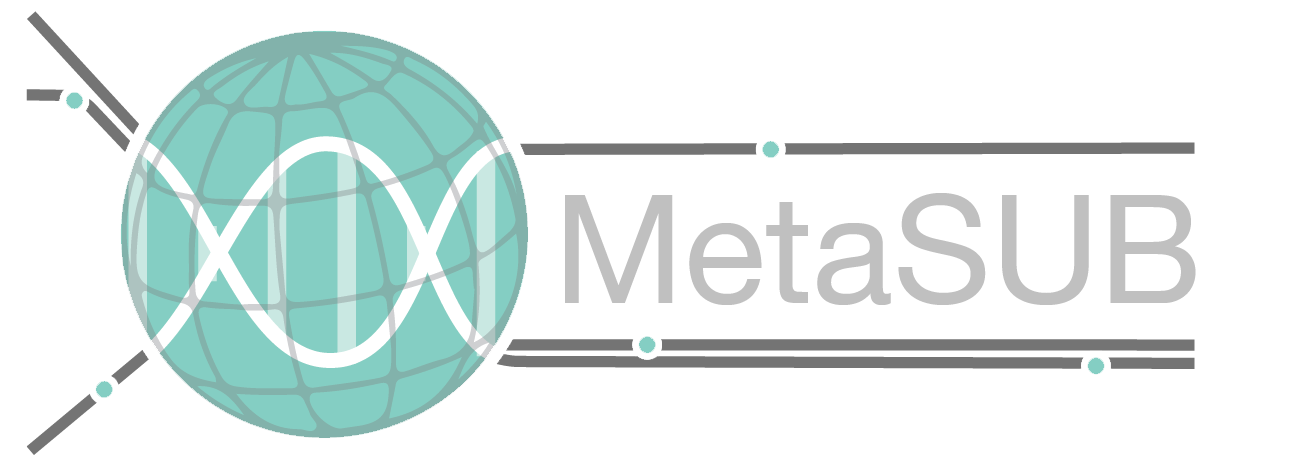The MetaSUB Consortium is now benchmarking bioinformatics tools available for metagenomic analysis with the goal of identifying and developing the most reliable methods for studying microbiomes and metagenomics.
Major tools we are using for taxa characterization include:
- Metagenomic Phylogenetic Analysis (MetaPhlAn)
- MetaGenomic Rapid Annotation using System Technology (MG-RAST)
- Basic Local Alignment Search Tool (BLAST)
- Sequence-based Ultra-Rapid Pathogen Identification (SURPI) tool
- Quantitative Insights into Microbial Ecology (QIIME).
- CLARK
- Naive Bayes Classification tool (NBC)
- One Codex
- Kraken
- PhyloSift
- Genomic Origin Through Taxonomic CHAllenge (GOTTCHA)
- CosmosID Metagenomics Application
Other than taxa classification the consortium’s bioinformatics pipeline includes functional and strain-level analysis using the HMP Unified Metabolic Analysis Network (HUMAnN) and Pangenome-based Phylogenomic Analysis (PanPhlan), respectively. This also includes screening for antibiotic resistance markers.
Finally, utilizing MetaBGC we will be surveying these environments for novel biosynthetic gene clusters (BGCs). Since bacteria use small molecules to mediate microbial competition, microbial cooperation, and environment sensing and adaptation, we hypothesize that identifying the suite of small molecules produced by bacteria that are living in urban environments will reveal hidden traits of their AMR and successful colonization.
